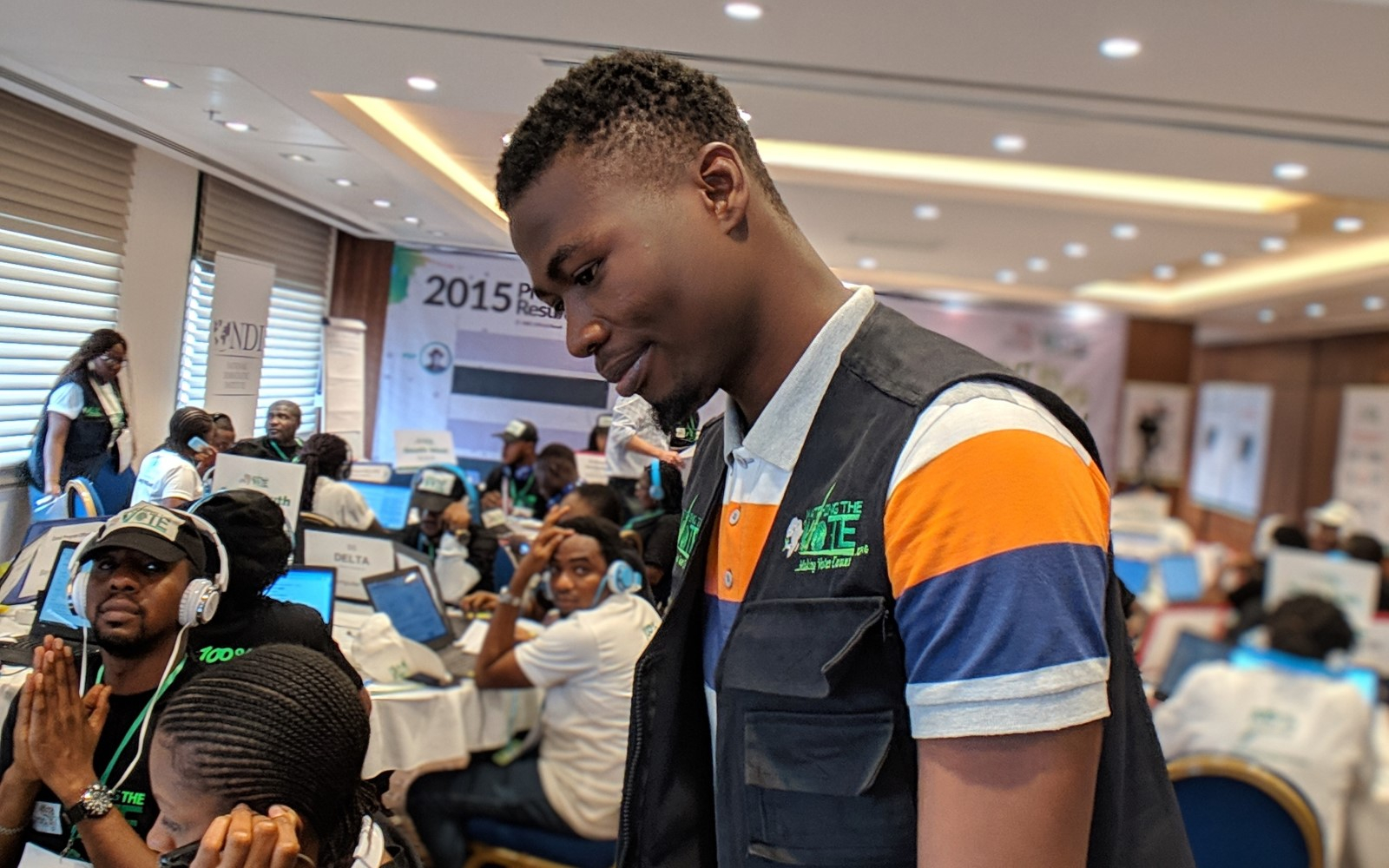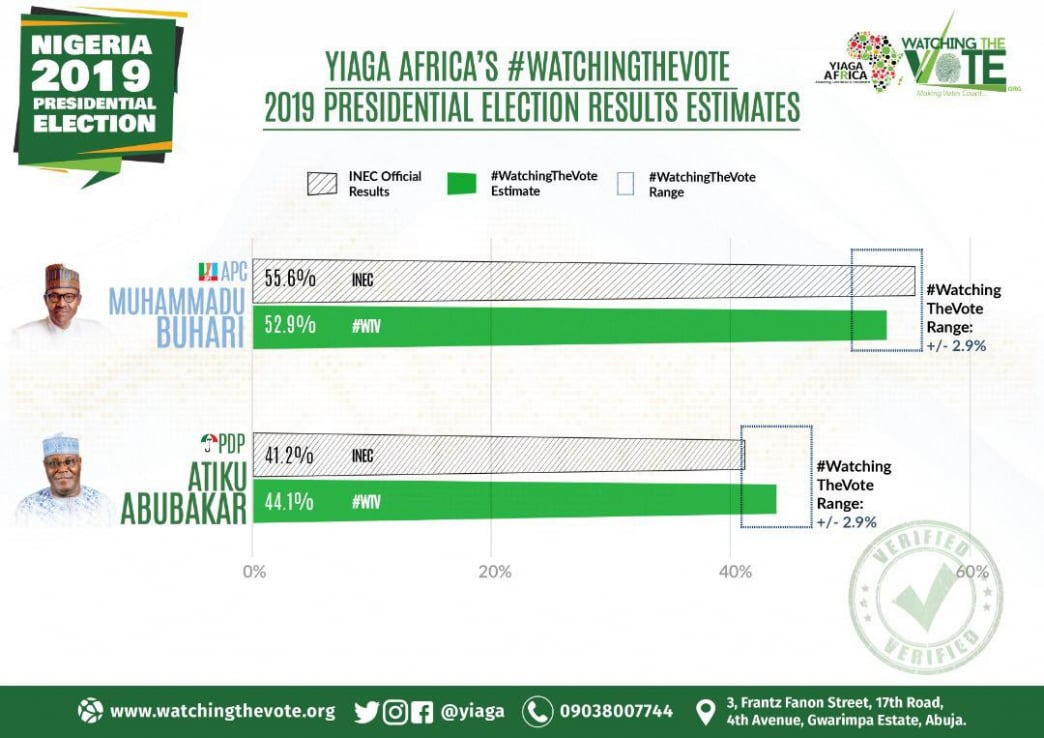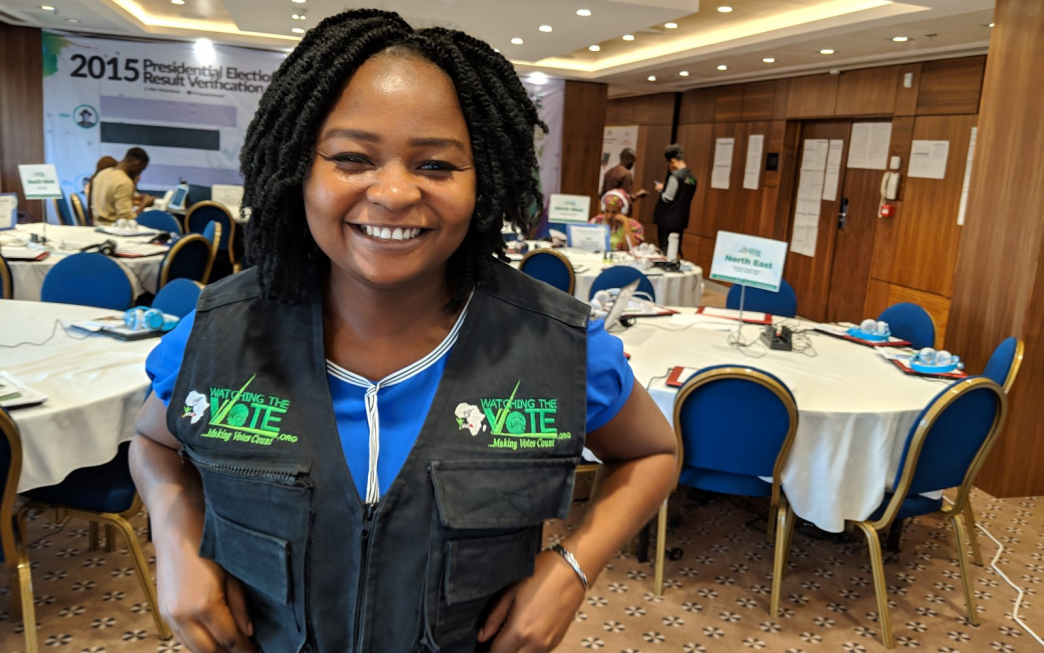
YIAGA AFRICA's ICT officer works with data clerks to access the database and clean observer reports.
SHARE
On February 23, Nigerian voters re-elected President Muhammadu Buhari of the All Progressives Congress (APC) over his main challenger from the People’s Democratic Party (PDP), Atiku Abubakar. Elections were originally set for February 16, but five hours before the polls opened, the Independent National Electoral Commission (INEC) postponed the elections by a week, citing logistical and security challenges. The postponement drew outrage from supporters of both APC and PDP, but it was hardly unprecedented: Nigeria’s elections in 2011 and 2015 were also delayed. With a third postponement of national elections in as many election cycles, public trust in INEC, and its ability to administer polls without issue, dwindled.
YIAGA AFRICA Election Results Infographic

Against the backdrop of an embattled election management body and a public with high expectations for the electoral process, a sample-based, data-driven observation by Nigerian civil society helped answer questions around the quality of polls. On election day, YIAGA AFRICA deployed a parallel vote tabulation (PVT) under its #WatchingTheVote program in order to assess the quality of the electoral process and verify INEC’s official election results. YIAGA AFRICA deployed 3,030 citizen election observers to a statistically representative sample of 1,515 polling units across Nigeria with NDI support. Over the course of election day, the observers submitted 33,000 coded text messages containing nearly 550,000 individual data points. The observers captured information on a variety of issues, from polling unit opening times, to voter accreditation using anti-fraud smart card readers, to the conduct of poll officials and party agents.
After processing their observers’ reports, YIAGA AFRICA found that APC received between 50.0 percent and 55.8 percent of the vote, while PDP received between 41.2 percent and 47.0 percent of the vote. The official results announced by INEC showed that the APC won 55.6 percent of the vote and PDP captured 41.2 percent of the vote. The Commission’s results fell within YIAGA AFRICA’s estimated ranges, verifying that the outcome reflected the will of Nigerian voters. Amid numerous allegations of electoral offences and a legal challenge of the election results by PDP, YIAGA AFRICA’s independent verification of INEC’s official results announcement proved critical to reinforce public trust in the election results.
While YIAGA AFRICA’s PVT verified the election outcome, it also noted serious challenges in the election day process. For instance, polls did not open before 11:30am for 26 percent of the country. An even more serious test to electoral integrity came in states like Nasarawa. In Nasarawa, INEC cancelled results from a large number of polling stations, representing nearly 21 percent of registered voters in the state. INEC defended their decision by stating the cancellations were the result of high levels of violence and deliberate circumvention of the anti-fraud smart card readers used to accredit voters. Nasarawa state’s official results reflected an APC victory, despite it being perceived as a PDP stronghold, leading many Nigerians to question the outcome. In fact, INEC cancelled polling units with over nine percent of registered voters nationwide, with four of 36 states - all PDP strongholds - having rates of cancellation more than 20 percent of registered voters.
Data Analyst Takes a Break

Meanwhile, YIAGA AFRICA was in a unique position to comment on the issue, because its PVT captured information on smart card reader use as well as violence, and reflected votes cast before cancellations. At present, YIAGA AFRICA’s PVT is unable to comment on why the votes in particular polling units were cancelled because INEC has not yet shared the exact locations where cancellations took place. YIAGA AFRICA’s PVT findings do indicate that PDP would have carried Nasarawa state without the cancellations. However, YIAGA AFRICA’s PVT estimates are based on votes cast at the polling units before any results were cancelled. Because these estimates match the officially announced results, this demonstrates that the cancellations did not have a material impact on the election outcome.
Despite the challenges, the outcome of the presidential poll reflected the will of Nigerian voters. To ensure that INEC improves with subsequent elections, civil society must be able to hold electoral officials to account. To improve transparency and build confidence in the credibility of the polls, INEC should notably release the locations of polling units that the Commission cancelled, given the high number of such cancelled polling units. Furthermore, INEC should define more clearly what is deliberate circumvention of smart card readers, so that all electoral stakeholders can better mitigate its incidence, and large scale cancellations can be prevented in the future.
A democracy is strengthened by sound elections. YIAGA AFRICA’s PVT helps to increase transparency around the process and official results as well as signal priority areas for electoral reform. Based on its findings from this electoral cycle, YIAGA AFRICA plans to continue engaging with INEC to strengthen Nigeria’s electoral framework in an effort to ensure that future elections have fewer challenges than the 2019 polls.


